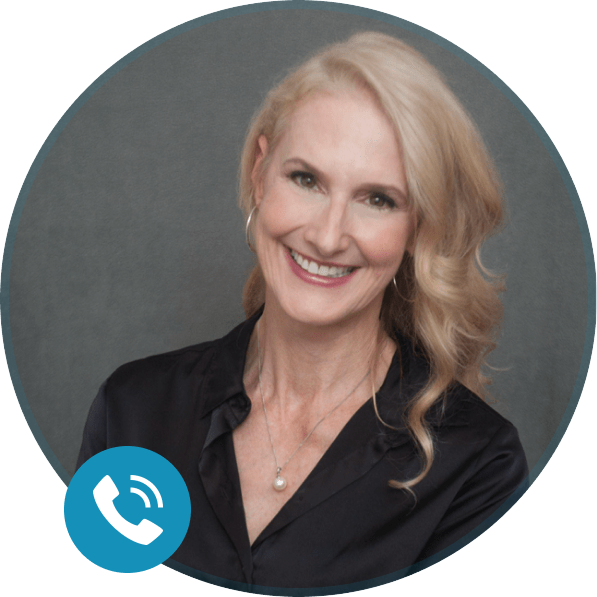Life is full of surprises; some good, some not so much. When the unexpected happens, our confidence can take a hit.
Let’s dive into practical ways to build your confidence, why it’s so important during uncertain times, and when reaching out to a therapist could be the perfect solution.
Why Confidence Matters More During Uncertain Times
Confidence isn’t just about feeling good. It’s about trusting yourself to handle whatever comes your way.
Think about it. When life throws a curveball—whether it’s a job change, health issues, or something global—confidence becomes your best friend. It helps you:
- Make decisions even when the outcome isn’t clear.
- Bounce back after setbacks.
- Adapt without losing who you are.
- Lead yourself—and others—through the unknown.
Without confidence, uncertainty can feel like a heavy weight. But with it? You start seeing those challenges as opportunities.
Step 1: Redefine What Confidence Means
So, what does “confidence” really mean?
A lot of people think it’s about being fearless or always having everything figured out. True confidence is about acting even when you’re scared. It’s about moving forward, even if you don’t have all the answers.
Ask yourself:
- When have I faced uncertainty and succeeded?
- What strengths helped me get through it?
- How can I bring those strengths into my current situation?
Reflecting on past wins builds a foundation of trust in yourself. You’ve done it before—you can do it again.
Step 2: Focus on Small Wins
When everything feels like it’s crashing down, it’s easy to get overwhelmed. Big goals can feel daunting. Instead, focus on small wins—those little victories that prove you’re capable.
Here are some small wins:
- Having that tough conversation you’ve been avoiding.
- Completing a task at work.
- Taking a quick walk to clear your head.
- Reaching out to a friend for support.
Each win, no matter how small, is a step forward. Confidence is like a muscle: the more you use it, the stronger it gets.
Step 3: Silence Your Inner Critic
We all have that inner voice—the one that says, “You can’t do this.” Or, “You’re going to fail.”
But here’s the thing: That voice doesn’t define you. It’s just noise.
A great way to manage it is to:
- Name it: Call your inner critic something silly—like “Mr. Doubt.”
- Challenge it: Ask, “Is this thought 100% true?”
- Replace it: Swap it for something more supportive—“I’m capable,” or “I’ve overcome challenges before.”
When self-doubt creeps in, remind yourself of the many times you’ve conquered obstacles before.
Step 4: Embrace the Growth Mindset
A growth mindset is all about believing you can improve through effort and learning. So, when you face setbacks, instead of feeling defeated, think: “What can I learn from this?”
Ask yourself:
- What is this teaching me?
- How can I do better next time?
When you see challenges as opportunities to grow, you shift your perspective—and that builds confidence.
Step 5: Build a Strong Support System
Remember, you don’t have to do this alone. Surround yourself with positive, supportive people who lift you up.
Your support system can include:
- Friends who believe in you.
- Mentors who offer wisdom.
- A therapist who helps guide you.
A therapist can help you break free from self-doubt, find your strengths, and set goals. Therapy isn’t just for when things go wrong—it’s also for when you want to build confidence and grow.
Step 6: Practice Self-Compassion
It’s easy to be hard on yourself, especially when things aren’t going according to plan, but self-compassion—treating yourself with the same kindness you’d give a friend—is key to building confidence.
Try this:
- Feel your feelings: It’s okay to be scared, anxious, or frustrated. Accept not judge feelings as they arise, allowing “space” so that these feelings are addressed not avoided.
- Forgive your mistakes: We all stumble. It’s part of learning.
- Encourage yourself: Speak to yourself with love, not criticism.
Studies show that self-compassion boosts resilience and confidence. You deserve the same kindness you give others.
Step 7: Take Care of Your Body and Mind
Confidence thrives when your body and mind are in good shape. So, take care of yourself—even when life feels unpredictable.
Daily habits that support confidence include:
- Exercise: It reduces stress and boosts mood.
- Nutrition: Eating well fuels both your body and your mind.
- Sleep: Proper rest helps emotional regulation.
- Mindfulness: Meditation, deep breathing, or journaling can calm your mind.
When you take care of your body and mind, you create a solid foundation for your confidence to grow.
When to Seek a Therapist for Building Confidence
Sometimes, we need a little extra help. If you struggle with chronic self-doubt or anxiety, a therapist can be a game-changer in your confidence-building journey.
A therapist can help you:
- Challenge negative beliefs.
- Set realistic goals.
- Build a strong, confident self-image.
If you feel stuck or overwhelmed, professional support could be exactly what you need to move forward.
Conclusion
Here’s the truth: No one is confident all the time, especially when life feels unpredictable. But you can build confidence step by step. Start small. Celebrate your wins. Be kind to yourself. Trust that you’ve got what it takes.
Confidence isn’t about avoiding fear—it’s about learning how to face it head-on. When you do, you’ll discover that the real secret isn’t in avoiding uncertainty—it’s in thriving through it.
FAQs
What does “building confidence” really mean?
Building confidence means developing trust in your abilities, decisions, and resilience—even when facing fear or uncertainty. It’s not about feeling fearless, but about believing you can handle challenges and grow through them.
Why is building confidence important during unpredictable times?
Unpredictable times often trigger fear, doubt, and anxiety. Building confidence helps you make decisions, adapt to changes, and bounce back from setbacks. It equips you with a resilient mindset that turns uncertainty into opportunity instead of defeat.
How can I start building confidence when everything feels overwhelming?
Start by focusing on small, achievable goals that create quick wins. Each small success strengthens your belief in yourself. Practicing positive self-talk, reflecting on past successes, and maintaining a healthy routine are also powerful ways to start building confidence.
What are signs that I might benefit from seeing a therapist for building confidence?
You might consider seeing a therapist for building confidence if you:
- Constantly doubt your abilities.
- Struggle with fear of failure or perfectionism.
- Feel stuck and unable to take action.
- Experience social anxiety or low self-esteem.
- Want professional strategies to boost your self-assurance.
Can building confidence help with anxiety?
Yes! Building confidence often reduces anxiety because it strengthens your trust in your ability to manage challenges. When you believe you can handle whatever comes your way, the fear of “what if” loses its grip, leading to calmer, more grounded emotions.
How long does it take to build lasting confidence?
Building confidence is a lifelong journey, but you can begin to feel stronger within weeks or months with consistent effort. Working with a therapist for building confidence can accelerate your progress by providing tailored tools and emotional support.
What are some daily habits that support building confidence?
Daily habits that support building confidence include:
- Practicing gratitude and positive affirmations.
- Setting and achieving small daily goals.
- Moving your body through exercise or stretching.
- Keeping promises to yourself.
- Practicing mindfulness or meditation to manage fear and doubt.
Is it normal for confidence to fluctuate?
Absolutely. Even the most self-assured people experience dips in confidence, especially during major life changes or challenges. The key is to continue building confidence steadily through small actions, self-compassion, and seeking help when needed.
As a licensed therapist and high-performance mindset coach with over 25 years of experience, I specialize in helping individuals retrain thinking patterns, develop healthy habits, and reclaim their power. Through my unique, science-backed approaches, I’ll guide you to break through mental blocks and create sustainable change that reflects your highest potential.
Whether you’re ready to work through emotional roadblocks, stop overthinking, build healthier relationships, or step boldly into your next chapter—this is your sign. You don’t have to do it alone.
Train your brain, transform your life.
Let’s work together to align your mindset with the life you know you’re meant to live.
➡️ Book your private session now or inquire about my exclusive coaching packages.
www.crystalperdue.com






